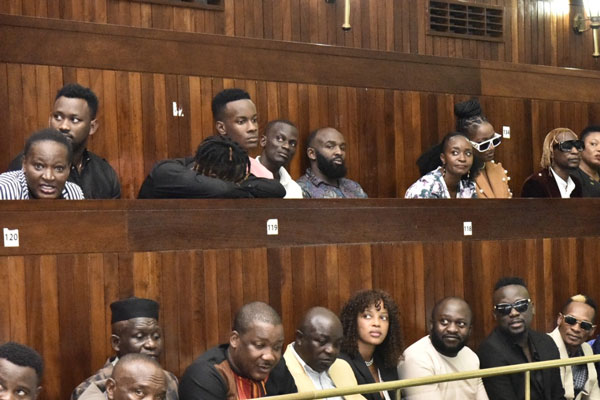
Kampala, Uganda | THE INDEPENDENT | The Uganda National Musicians Federation (UNMF) has petitioned Parliament, urging swift amendments to the Copyright and Neighbouring Rights Act 2006 to protect their intellectual property rights from infringement.
The petition, presented to the House by Phiona Nyamutoro, the National Female Youth legislator during a plenary sitting chaired by Deputy Speaker Thomas Tayebwa Wednesday, highlights the need for an update to the Copyright and Neighbouring Rights Act to align it with technological advancements and international best practices.
“Your Petitioners who are contributors to the creative industry, aver that the existing legal framework for distribution of revenue collected from call-back tunes disadvantages the artists as most of the revenue benefits the telecom companies rather than the artists who should benefit more from their works,” part of the petition read.
To address this, they propose a revision of call-back charges, with 60 percent of the revenue going to the artist and the remaining 40 percent being shared between the government and telecom companies. Additionally, the petition suggests the introduction of a copy levy on devices used for reproducing copyright-protected works, with the proceeds to be equally shared between the government and copyright holders.
“Your petitioners recommend a fine of not less than five million shillings to be paid by a person who is convicted of infringing the copyright of an artist because such illegality causes a negative effect on their livelihood,” the Federation added. They also seek stricter measures against broadcasters using pirated content that undermines intellectual property rights, recommending a fine of not less than five million shillings for copyright infringement.
The Federation emphasizes the importance of embracing the digital era to protect their rights in the digital domain, encouraging innovation in digital content creation and fair compensation for online use of copyrighted works. The Federation’s proposed amendments also include a requirement for broadcasters to dedicate 90 percent of airtime to Ugandan music and use Ugandan models, actors/actresses, and artists in advertising, promotion, and product endorsements to promote local content and the music industry.
Established in 2023 and currently led by Edrisa Musuuza alias Eddy Kenzo, the Federation aims to unite musicians from diverse genres and backgrounds across Uganda, providing a platform for networking, collaboration, and resource sharing. Parliament previously granted leave to Hillary Kiyaga, also known as Dr. Hilderman, the Mawokota North legislator, to introduce the Copyright and Neighbouring Rights (Amendment) Bill. This bill seeks to recognize and protect the rights of composers of literary, artistic, scientific, and intellectual works.
However, it has not yet been tabled for discussion. Deputy Speaker Tayebwa acknowledged the importance of government support for the music industry, recognizing it as a key avenue for achieving socio-economic transformation. According to statistics from the Uganda Performance Rights Society (UPRS), the creative industry currently employs over 400,000 people, contributing over 140 billion Shillings to the economy annually. By 2030, it is projected to employ over 500,000 people with an expected annual revenue of 280 billion Shillings.
****
URN
 The Independent Uganda: You get the Truth we Pay the Price
The Independent Uganda: You get the Truth we Pay the Price



